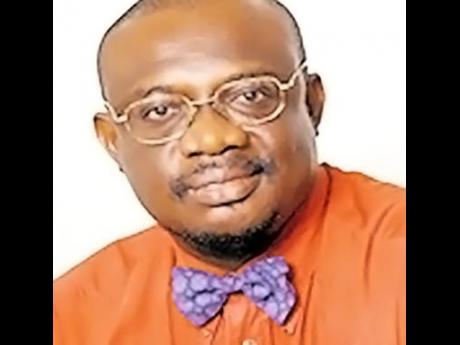Ogunsalu: Scientists should have calmly reviewed past research to fight COVID-19
WESTERN BUREAU: Local COVID-19 researcher Dr Christopher Ogunsalu, a lecturer in the Faculty of Medical Sciences at The University of the West Indies (UWI), believes that scientists should have referred to previously published medical information...
WESTERN BUREAU:
Local COVID-19 researcher Dr Christopher Ogunsalu, a lecturer in the Faculty of Medical Sciences at The University of the West Indies (UWI), believes that scientists should have referred to previously published medical information in order to combat the coronavirus during its initial outbreak in 2020.
“The lesson to learn, and this is a global lesson, is that, when a pandemic comes, scientists need to relax and think. One of the things that happened during the COVID-19 pandemic is that the scientists never thought, and they never went back to the scientific literature to review the science that they have done over the years,” Ogunsalu said during an interview with The Gleaner on Sunday.
While acknowledging that more research needs to be done into the effects of the virus, Ogunsalu pointed to the use of menthol crystals – on which he has previously done research – as an example of a simpler measure that could have been used from the outset to treat COVID-19 patients instead of relying on ventilators.
“The science behind the use of menthol has been published from over 60 years ago, and there were so many researchers that did so much on menthol. The menthol is a better alternative to the ventilator, because, if the patient inhales menthol, they will regain consciousness, and I have treated patients as such during the pandemic,” Ogunsalu explained.
“It baffles me and some of my team members that a lot of clinicians globally, including the World Health Organization [WHO], did not think at the onset of COVID-19 that the patients were being ventilated and were dying under the ventilator. They were using it to ventilate people who did not really need it, but who needed something simpler to help them survive,” Ogunsalu added.
“A lot more research needs to be done in this area, and I am going to invest a lot of time in further studying the biochemical injury to the brain from COVID-19.”
Last December, Ogunsalu’s research into a menthol crystal inhalation regimen as an ideal weapon to fight COVID-19 was accepted for peer review by international medical journal, Journal of Dentistry and Oral Sciences.
The research was conducted over a one-year period through clinical trials with a 100 per cent success rate. It entails the inhalation of the menthol vapour through a pump for five minutes every eight hours for three days, by patients with an early COVID-19 diagnosis.
Meanwhile, Dr France Pencle, a neurosurgeon at the Cornwall Regional Hospital in St James, noted that ventilators should be used as a last resort to treat COVID-19 patients, while acknowledging that researchers during the pandemic’s outset had to work with whatever information they had on hand at the time.
“What they had was very limited resources and a mass of patients before anything was developed. To develop the science behind the treatment compared to actually something for a patient in front of you, there is always a lag, but now the science is coming out after we have had some control of the situation, which is why we stopped rushing to use the ventilator,” said Pencle.
“We started to use high-flow oxygen to overcome the need for it [ventilator]. So, with respect to COVID-19, the use of the ventilator should be the last option. What we need to do is first go to the high-flow oxygen machine before going to use a ventilator for these patients,” Pencle added.
Up to October 7, the WHO has recorded 617,597,680 globally confirmed cases of COVID-19 and 6,532,705 deaths from the disease. Jamaica has recorded 151,931 confirmed cases and 3,320 deaths from COVID-19 over the same period.

